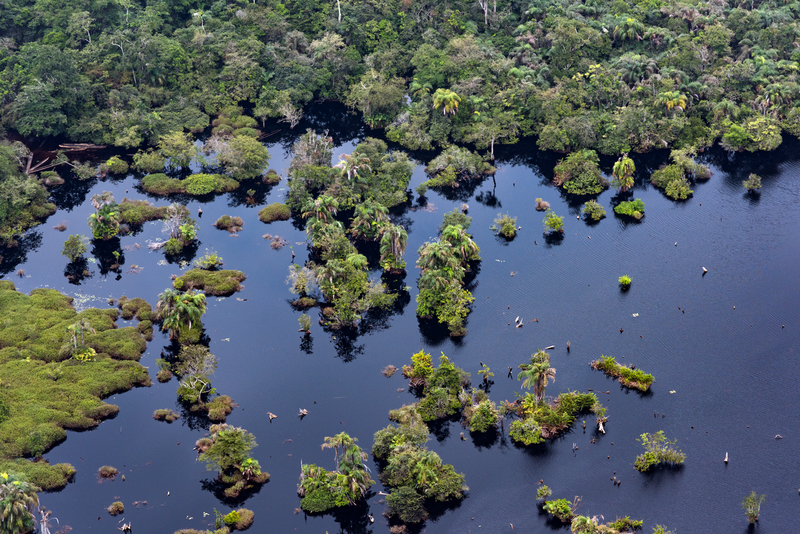The Democratic Republic of Congo (DRC) plans to auction off tracts of land this week to international oil companies despite promises to UN and the EU to protect the rainforest in the fight against climate change.
The planned auction covers 27 oil and three gas fields and encompasses an area more than 240,000 km2, including rainforest and peatlands that is storing vast amounts of carbon. The drilling fields are close to or inside protected areas, including a gorilla sanctuary.
“This auction not only makes a mockery of DRC’s posturing as a ‘solution country’ for the climate crisis – it exposes Congolese people to corruption, violence, and poverty that inevitably come with the curse of oil, as well as more heat waves and less rains for all Africans,” said Irene Wabiwa, International Project Lead for the Congo Forest campaign at Greenpeace Africa.
According to UN figures, the DRC forest is the second largest in the world and represents 10% of the world's tropical forests. It absorbs nearly 1.5 billion tonnes of CO2 from the atmosphere every year or 4% of global emissions. The peatlands cover 100,000 km2 and are the largest in the world. Its ecosystem offers a carbon absorption service equivalent to 10 years of global emissions.
To protect the forest, DRC signed what was described a landmark agreement last November at the UN Climate Change Conference (COP26) in Glasgow – the Central African Forest Initiative. It comes with a UN trust fund of $500 million over the first five years and is supported by among others the EU and some of its member states.
Tal Harris, International Communications Coordinator, Greenpeace Africa, told The Brussels Times that Belgium is part of the donor group behind CAFI, which signed the agreement that was supposed to protect the DRC forest.
The agreement is in the form of a non-binding Letter of Intent and does not prohibit exploration and exploitation of fossil fuels in the forest and the peatlands. However, it does request environmental and social impact studies to ensure that the activities are not incompatible with the protection of the areas concerned and have no negative impacts.
This leaves some room for DRC to go ahead with its auctions plans without launching the impact studies and waiting for their results. Today, the DRC governments seems less concerned about protecting the rainforest and contribute to the fight against global warming. The country’s lead representative on climate issues justified the action plans as a way for DRC to get compensated for the exploitation of Congo in the past.
“We are part of the solution but the solution also includes us making use of our oil resources,” he said in an interview. The most carbon-rich tropical region in the world is estimated to store the equivalent of three years’ worth of total global fossil fuel.
In other African countries, oil drilling has seldom benefited local communities. In a recent field trip to four of the designated oil blocks, Greenpeace Africa’s Forest campaigners collected testimonies from local communities that were all shocked about the prospective auction of their lands to oil companies and feared that it would ruin their livelihoods.
“The international community and the Congolese government must end the neocolonial scramble for African fossil fuels by restricting oil companies’ access to the DRC, focusing instead on ending energy poverty through supporting clean, decentralised renewable energies,” added Irene Wabiwa.
According to Greenpeace, two European oil giants, French TotalEnergy and Italian Eni, have replied that they will not participate in the action but it remains unclear which oil companies are planning to bid in the auction today and on Friday. Greenpeace has warned oil companies against participating in the auction and advised banks and insurance companies not to support oil and gas drilling in DRC.
The auctions will result in awarding drilling rights which could cause irreversible damage to the rainforest and peatlands in DRC and amount to ecocide if such a crime would be recognized in international legislation. Until now, the European Commission has been hesitant to support the campaign for legislation against ecocide.
The Commission has proposed a new directive on the protection of the environment through criminal law but its scope and jurisdiction are limited to the EU member states. The Commission did not reply in time to a request for comment on DRC’s auction plans and to a question if the proposed directive can be applied for sanctions against European companies involved in drilling in rainforests and peatlands.
M. Apelblat
The Brussels Times

